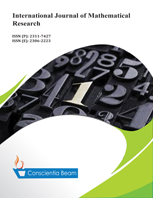Survival Quantile Regression Analysis of Covid-19 in Rivers State, Nigeria
DOI:
https://doi.org/10.18488/journal.24.2021.101.1.11Abstract
Coronavirus 2019 (Covid-19) cases in Rivers State, Nigeria are on the increase day by day. It became imperative to investigate the survival rate of covid-19 patients in this state. The survival quantile regression was applied assuming right censoring to estimate the effect of age, sex, fever, anosmia, comorbidity, and cough on the survival time of patients. The results show that on admission into the hospital the survival time of the patients depended on the age and the presence of anosmia, comorbidity, and fever. By the mid survival period only anosmia and fever were seen to be significant but at the 75th quantile comorbidity was also seen to be significant along with fever and anosmia. The result also shows that having fever is associated with longer stay in the hospital based on the size of the effect at different quantiles. We also noticed that though the effect of anosmia and comorbidity were significant at the 25th and 75th quantile the sizes of the effects were minimal, but comorbidity was seen to have a bigger effect than anosmia. Comparing the survival time of groups, the results showed that males and females have the same survival time and patients with and without comorbidity equally have the same survival time. Patients without fever, anosmia and cough had a shorter survival time than those that had fever, anosmia, and cough. We then concluded that fever, comorbidity, and anosmia are the major factors that affect the survival time of covid-19 patients in Rivers State, Nigeria.

